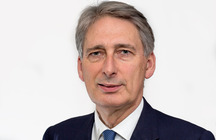Philip Hammond – 2016 Comments at EU Foreign Affairs Council
Below is the text of the comments made by Philip Hammond, the Foreign Secretary, to journalists when he arrived at the EU Foreign Affairs Council in Brussels on 14 March 2016.
I’d just like to start by offering my condolences to the people of Turkey and the people of Cote d’Ivoire for the terrible loss of life in the terrorist incidents there yesterday, and as you would expect, we stand firmly behind them, alongside the people of those countries and the people of all countries as they face and deal with the challenges of terrorism around the world.
We’re going to be focusing here today on Russia, on Libya, and on Iran.
On Russia, we need to be clear about how we manage the EU’s relations with Russia in the future. We have to have relationships with Russia but we can’t lose sight of the challenge that Russia represents to our values and to our security and we have to be robust in making our case and defending our principles, our values, and our borders in Europe.
We also need in Syria, the Russians to get a grip on their Syrian clients, and make sure that they are delivering the obligations that Russia has made on their behalf in the International Syria Support Group which lie behind the current cessation of hostilities. We expect President Putin, who has backed President Assad with huge amounts of military and political commitment, we expect him to be able to get control of Assad, and at the moment it doesn’t look like he is in control of Assad.
On Iran, we need to make sure that our approach is balanced so that while we exploit the opportunities that come from an opening of Iran and improved relationships between Iran and the West, we also have to be clear that Iran continues to carry out unacceptable behaviour, missile testings, aggressive behaviour in sponsorship of terrorism around the Gulf, and we shouldn’t in any way pull our punches about that kind of behaviour.
And finally we’ll be talking about Libya with Martin Kobler, the UN Special Representative. We are obviously all very keen to see the full endorsement of the government of national accord and its installation in Tripoli as the de facto effective government of Libya. The EU has plans for a big collaboration with the Libyan government once it is properly installed and in place, and we mustn’t lose sight of the fact either that Libya remains an important irregular migration route into the European Union and as well as worrying about the situation in Turkey, we need to think about potential for continued migration flows through Libya.


